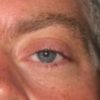At the Search Engine Strategies conference in New York two weeks ago, Yahoo and Click Forensics made an important announcement. Yahoo Search Marketing (YSM), the second largest online advertising network, and Click Forensics, the firm that led the fight against click fraud, have teamed up to offer an independent third party analysis of YSM click quality.
It was a surprise but entirely welcome announcement to a room full of veteran search marketers. The specter of click fraud was arguably the most critical issue confronting the paid-search advertising networks over the past four years. Though they have not entirely eliminated fraud from their billings, both Google and Yahoo have made enormous strides towards building safer systems.
Background of Click Forensics
Before becoming Yahoo’s Third Party, Click Forensics studied the PPC industry and gave a quarterly estimate of click fraud activity that generally found a range between 14% an 21% of clicks that could be considered “fraudulent”.
Unfortunately, they did not distinguish between the 1st tier networks (Google, Yahoo and MSN) and second, third and fourth tier networks which included GenieKnows, Kanoodle (now Seavast), Miva, Accoona and others. Inflated figures in the 14 – 21% range are not necessarily indicative of the experience most advertisers have with the major PPC networks.
Though mistakes still happen, actual fraud is thought to represent a tiny portion of clicks at either of the two major search engines.
Yahoo On The Right Track, What About Google?
Given the enormous number of ads served per hour, (Google was estimated to see 199 clicked-ads per second in January 2008 based on approximately 200,000 ads served per second!), it is easy to understand how errors can slip through the networks unnoticed until found by an advertiser or their agents.
The major networks continue to have problems with geo-targeting advertisements to searchers from specific geographic locations, day-parting segmentation in which ads are shown in specific locations at pre-set times, and contextual distribution where the ads match page content. When shown solid evidence of improperly billed clicks, the networks are tending towards issuing refunds in the way of click credits. No harm, no foul, no fraud.
As difficult as it might be to accept at face value, the estimate of 0.02% actual click-fraud in Google AdWords made by Shuman Ghosemajumder is credible, if observers allow for numerous and often obvious mistakes.
Advertisers and observers should allow for numerous mistakes because their costs can add up quickly to thousands of dollars per month in essentially misspent monies. Over time, simple billing mistakes can appear to be a bad case of click fraud when suddenly noticed. When that happens (as it has twice in the recent past), the industry gets a black-eye as over-billed advertisers complain loudly in both the industry and mainstream media.
The trick is in finding the mistakes and correcting the networks before paying for clicks an advertiser did not agree to pay for. That was the main goal Enquisite’s Richard Zwicky had in mind when developing the PPC Assurance Paid-Search Verification suite; which finds, analyses and documents discrepancies between what an advertiser agrees to when setting up their paid-advertising campaigns what the paid search networks actually bill.
Combining near real-time click stream analysis, patented algorithms and back-end communication with the ad networks’ systems, PPC Assurance examines each click generated through a paid-search ad network.
Billing mistakes and malicious clicks are easily spotted, mapped and documented. All suspicious incidents are compiled in a report which can be forwarded to the quality and billing departments of the ad-networks at the push of a button.
Google and Third Party Verification
The need for a third party verification system at Google and at other paid-search networks is obvious. As search becomes a dominant channel in business to consumer advertising, agencies and marketing departments representing advertisers require solid data to prove or improve the accuracy of their ad-spends.
Such verification is present in all other forms of mainstream advertising. Television advertisers have Neilson rankings, radio has the Arbitron system and Newspapers have annual circulation audits. Pay per click advertisers, on the other hand, have had to rely on numbers provided by the ad-networks themselves.
Until now, that is. Yahoo Search Marketing has an independent Third Party Verification system. That’s a huge beacon of hope that should cast light on an improving field. The move sends a definite message to advertisers and to its much larger rival.
Yahoo is confident enough in the quality of its stream to bring Click Forensics, one of its most vociferous critics, in to act as a third party verification provider. Google is known to be experimenting with its own verification systems though observers expect they will find an independent organization to partner with in the future.




![AI Overviews: We Reverse-Engineered Them So You Don't Have To [+ What You Need To Do Next]](https://www.searchenginejournal.com/wp-content/uploads/2025/04/sidebar1x-455.png)